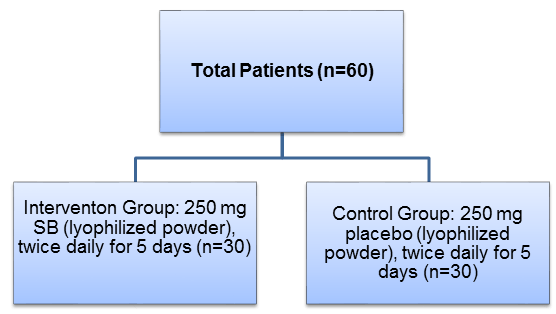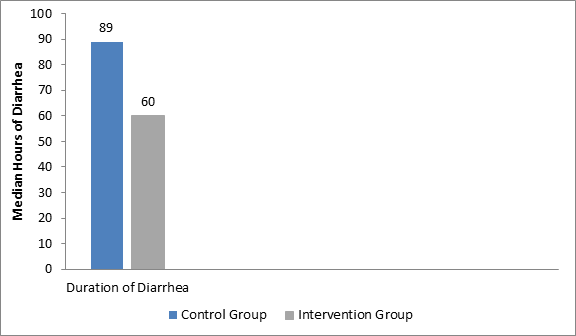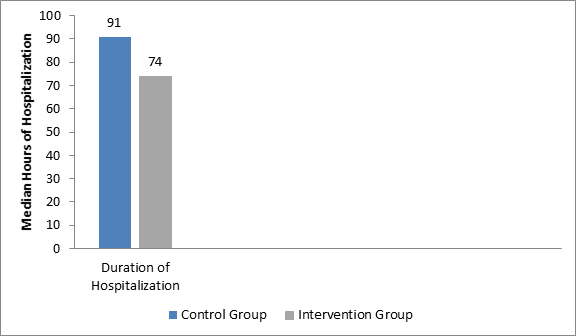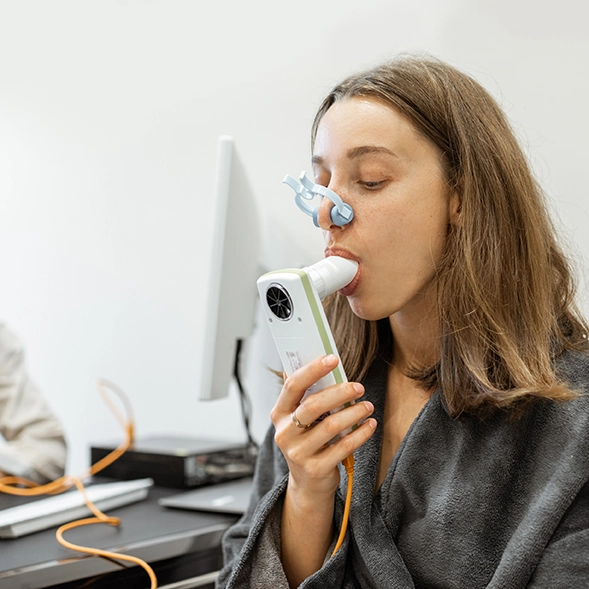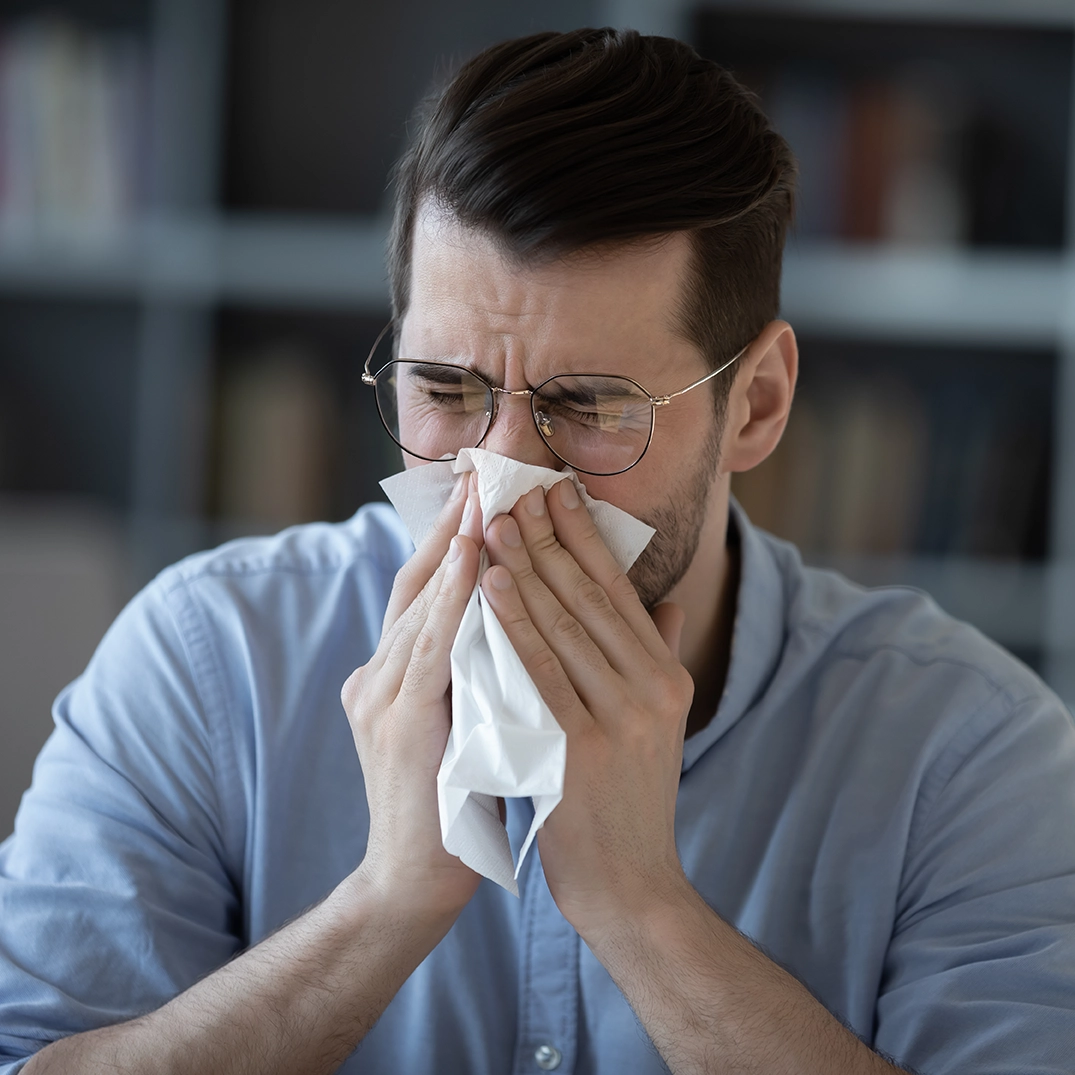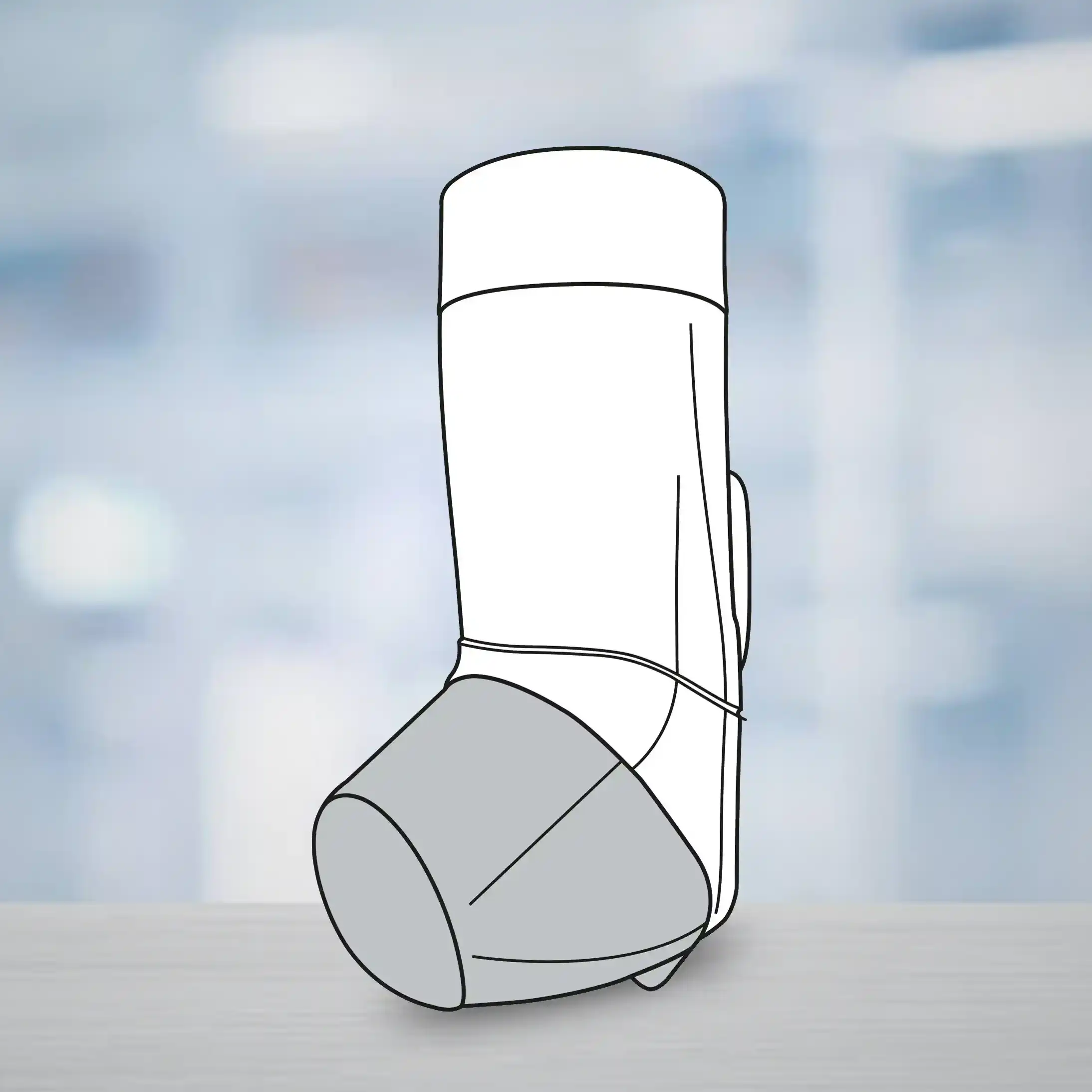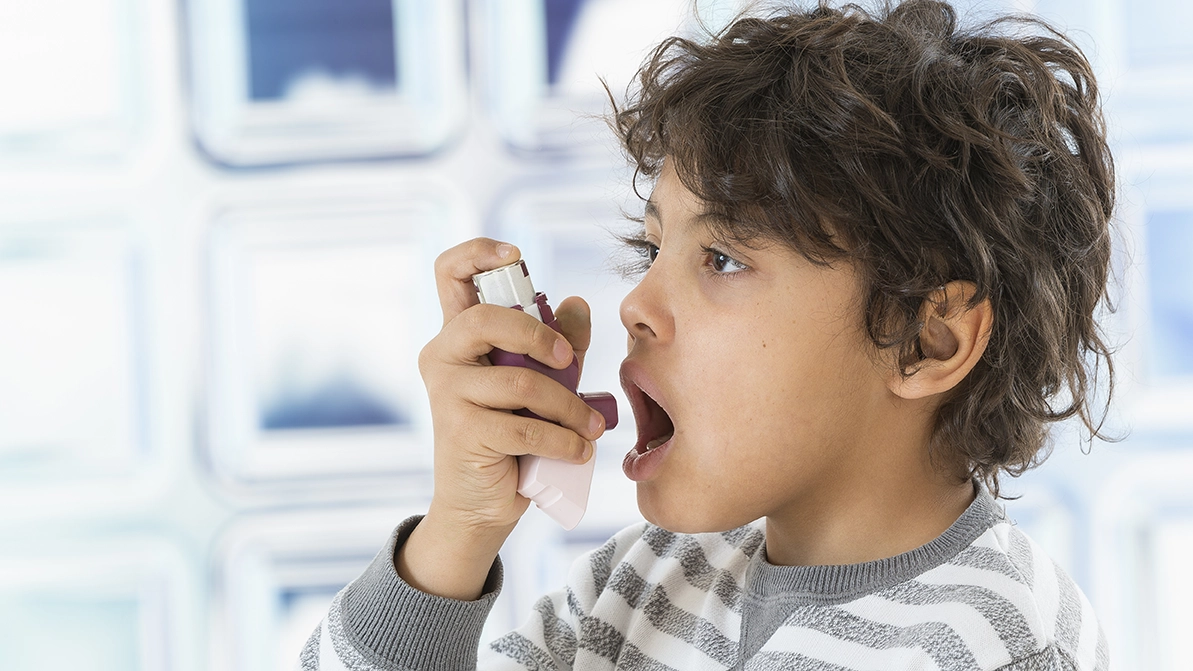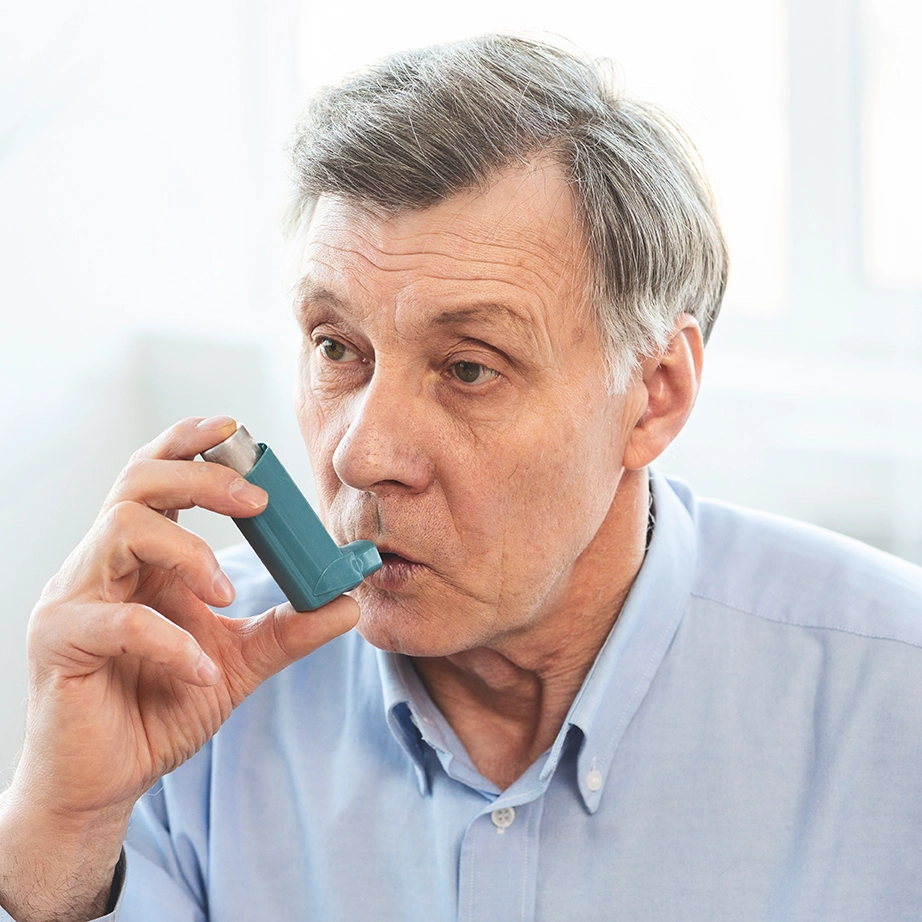Introduction
Death rate due to acute diarrhea is very high globally, particularly amongst children under 5 years of age. Acute diarrhea (AD) is caused due to several infectious agents like viruses, bacteria, parasites, and fungus. However, infectious diarrhea in children is mostly of viral origin with rotavirus being the most common agent. Oral rehydration therapy directed towards preventing or reversing dehydration has no effect either on the duration of diarrhea or on the stool output. Also, zinc is not universally effective in the treatment of acute diarrhea. Probiotics (live non-pathogenic microorganisms) are known to confer health benefits on the host in such cases. Although the efficacy and safety of Saccharomyces boulardii (SB), a yeast has been established in developed countries there is no such data from developing countries including India.
Aim
To determine the efficacy and safety of SB in acute childhood rotavirus diarrhea among Indian children.
Patient Profile
- Children (age group; 3 months to 5 years) with WHO-defined acute watery diarrhea of <48-hours duration and rotavirus positive stool sample (n=60)
- The study subjects had moderate to severe dehydration
Methods
Study Design
- Double-blind, randomized controlled trial
Treatment Strategy
- Children were randomized into intervention group (SB group) and the control group once they were clinically stabilized and had maintained hydration
- The probiotic (SB) and placebo were administered orally with 15 ml of normal drinking water and at one go or in small aliquots (to smaller babies) within 1 hour of preparation
- The children were discharged from the hospital after improvement in their clinical condition
Follow-up
- Till day 7 post-discharge
Primary Outcome
- Duration (in hours) of acute diarrhea
Secondary Outcome
- Duration of vomiting (in hours)
- Duration Fever (in hours)
- Duration of hospitalization (in hours)
- Proportion of children requiring parenteral rehydration
- Proportion of children having diarrhea lasting beyond day 7
- Any adverse effects
Results
- The children in the SB group had a significantly shorter median duration of diarrhea vs. the control group (60 vs. 89; 29 hours shorter) (Figure 1)
- The children in the SB group also had a significantly shorter duration of hospitalization (74 vs. 91, 17 hours shorter) vs. the control group (Figure 2).
- The duration of fever and vomiting did not differ significantly among the study groups. The proportion of children requiring parenteral rehydration and having persistent diarrhea lasting beyond day 7 was similar in both the groups
- No adverse events were reported
Conclusions
- Oral administration of SB 250 mg twice daily for 5 days in children below 5 years of age during an acute episode of rotavirus diarrhea resulted in significant shortening of the diarrhea duration and duration of hospitalization without any adverse events.
- Saccharomyces boulardii thus seems to be effective and safe in treating acute rotavirus diarrhea in a setting of developing country like India.
J Tropical Pediatrics. 2016; 62: 464–470.


